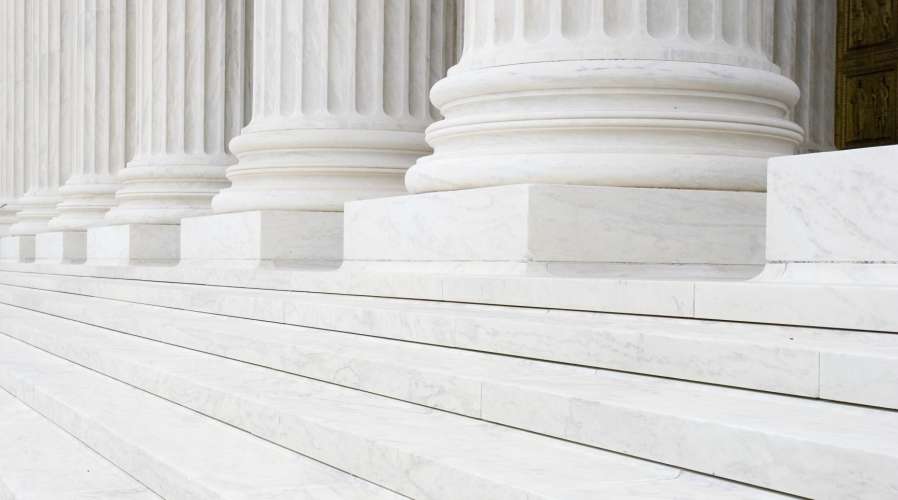
(3 min read)
The Employment Appeal Tribunal (EAT) has set out guidance to inform both employers and employees on the approach to be taken in cases involving religion or belief the workplace. While acknowledging the dangers of setting general principles in such cases and that there is "no one size fits all" approach, the EAT could see the benefit in a mutual understanding of the basic principles in the approach which should be adopted.
In Higgs v Farmor's School the EAT has recently set out new guidance for employers and employees when deciding whether the actions of an employer in restricting the way in which an employee manifests their religion or belief constitute unlawful discrimination.
Background
Mrs Higgs worked as a pastoral administrator and work experience manager at Farmor's secondary school. After the school received a complaint concerning a Facebook post Mrs Higgs had made criticising the nature of relationships education in schools, she was suspended pending a disciplinary investigation and subsequently dismissed for gross misconduct. She brought a claim alleging the dismissal was direct discrimination and/or harassment relating to her protected beliefs.
The ET concluded that her views did constitute a protected belief, but the measures taken by the school were due to its concern that someone reading the posts might conclude that she held homophobic and transphobic views (which she denied) and that the reason for its actions was therefore not because of her belief but because of how her views would be perceived. Mrs Higgs appealed.
The EAT upheld the appeal concluding that the ET had not followed the correct approach. It was not enough to find that the school had been motivated by a concern that Mrs Higgs could be perceived to hold "wholly unacceptable views". The ET had failed to address the question of whether the school's actions were because of or related to the manifestation of her beliefs. To answer that question the ET needed to consider whether there was a sufficiently close or direct link between Mrs Higgs' posts and her beliefs which would mean that the posts were to be viewed as manifestations of her beliefs. If so, the ET then needed to ask itself whether the school's actions were because of or related to that manifestation of belief, which would be unlawful, or whether the actions were in fact due to a justified objection to the manner of the manifestation. As the ET had erred in its approach to the determination of the "reason why" question, the EAT remitted the case for a re-hearing on that issue.
EAT Guidance
While cases involving the exercise of rights to freedom of religion or belief and to freedom of expression are invariably fact-specific, the EAT set down the following guidance for employers and employees:
- The foundational nature of the rights must be recognised: the freedom to manifest belief and to express views relating to that belief are essential rights in any democracy, whether or not the belief is popular or mainstream and even if its expression may offend.
- The manifestation of belief, and free expression, will be protected but may be limited to the extent necessary to protect the rights and freedoms of others.
- Whether a limitation or restriction is objectively justified will always be context specific, but it will always be necessary to ask: (i) whether the employer's objective is sufficiently important to justify the limitation; (ii) whether the limitation is rationally connected to that objective; (iii) whether a less intrusive limitation might be imposed without undermining the achievement of the objective; and (iv) whether the severity of the limitation outweighs the importance of the objective.
- In answering those questions, regard should be had to:
- the content of the manifestation;
- the tone used;
- the extent of the manifestation;
- the worker’s understanding of the likely audience;
- the extent and nature of the intrusion on the rights of others, and any consequential impact on the employer’s ability to run its business;
- whether the worker has made clear that the views expressed are personal, or whether they might be seen as representing the views of the employer, and whether that might present a reputational risk;
- whether there is a potential power imbalance given the nature of the worker’s position or role and that of those whose rights are intruded upon;
- the nature of the employer’s business, in particular where there is a potential impact on vulnerable service users or clients; and
- whether the limitation imposed is the least intrusive measure open to the employer.
Implications for Employers
Employers faced with sensitive and difficult questions over religion and belief in the workplace will welcome this guidance from the EAT. Such cases are always going to be very fact-specific, but employers and employees now have some general parameters for balancing an individual's beliefs and the manifestation of those beliefs with the rights, freedoms and reputation of others. We can expect employment tribunals to apply the principles set down in this guidance in the future and employers will need to consider their actions against this checklist of questions. That will mean taking a step back in the process and recognising the fundamental rights in question to ensure any action taken is a proportionate and balanced response.





